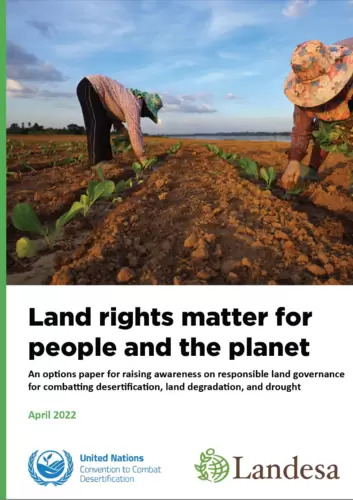Uganda government ignores its directive on COVID evictions;evicts thousands of smallholder farmers;artisanal miners
Describes how community-level dialogues uprooted harmful gender norms that hinder women’s rights to land. Showed that shifting harmful gender norms at the community level is crucial in supporting women to access land rights. Customary leaders like indunas and village headpersons are a key entry point for that shift. Change can be slow. But spaces for dialogue;critical reflection and support for action-planning enabled the indunas to not only change their own beliefs;but also begin to see their role and their communities in a different light.


